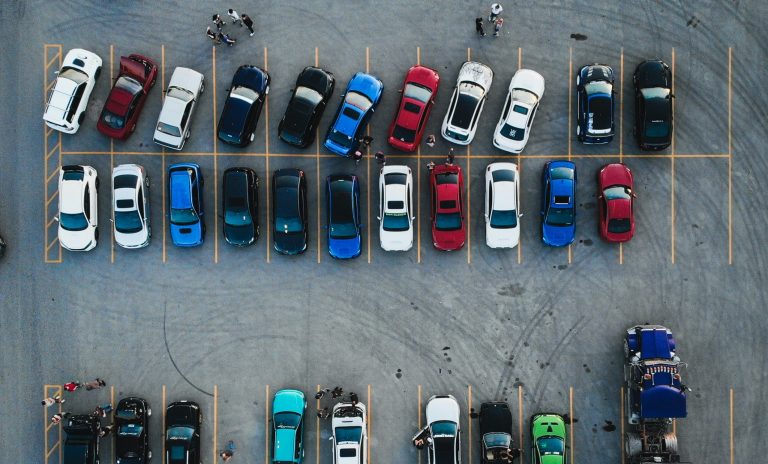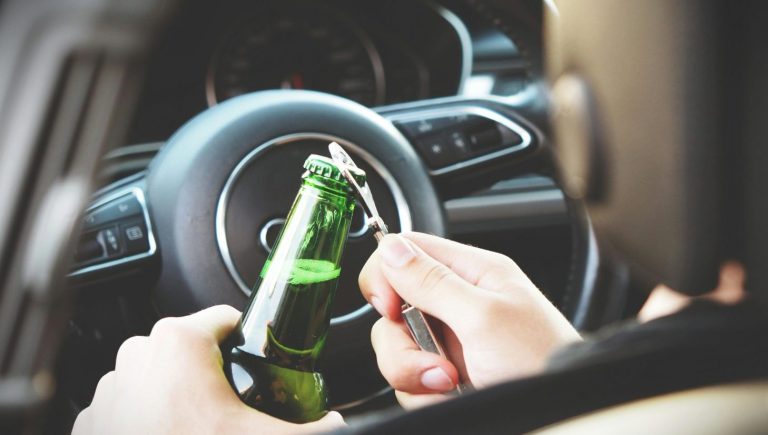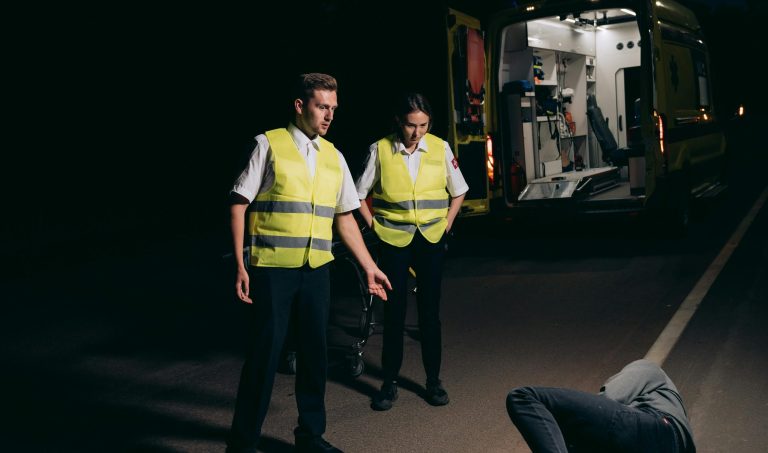If you’ve ever travelled to a new city or a new country, then you’ve probably rented a car. If you have but plan to rent a car anytime soon, then you need to know how car rental insurance works.
I remember the first time I rented a car in South Africa. I was thinking only of the adventure ahead. All the places we wanted to see, the warm water springs, the scenic drives to the winelands. I was looking forward to the hikes, pools and waterfalls.
I didn’t pay much attention to the car we were renting and the protection cover we needed for it. Anyone who’s had any experience renting cars will know, that’s a rookie mistake.
Driving here comes with its own unique challenges. If you’re visiting from overseas, know that the insurance laws are different from what you’re used to.
If it’s your first time renting a car, take your time to understand the risks and how you can reduce or remove them. Doing it right will help you relax and enjoy our beautiful country.
Table of content
Terms and concepts used in Car rental insurance
Liability
This refers to your legal responsibility when something goes wrong. In insurance, it means the costs you have to pay if you accidentally cause damage to someone else, their car, or their property.
Liability Waiver
A liability waiver is a type of insurance that protects you financially from the unexpected costs mentioned above when you rent a car. It can cover things like repair bills, theft, roadside-assist, towing, legal fees, and event medical expenses, so you’re not stuck paying out of pocket if things got wrong.
Some rental companies make this coverage mandatory, while others don’t. If it’s not required, you might need to show proof of your own insurance. Just remember: every liability waiver has its limits. It’s important to know what’s included and what’s not, we’ll break that down next.
Insurance Claim
This is a formal request made when there’s been an incident. A claim asks the insurer to cover a loss or damage as per the terms of your policy. The car rental company files a claim when:
- The rental car gets damaged in an accident.
The car gets stolen.
You’re held liable in an incident that involves a third party (a driver, pedestrian, or property)
After it’s filed:
- The car rental insurance company reviews the details.
They assess the damage.
They let you know what your policy covers.
Insurance Excess
This refers to a fixed amount paid you pay towards the claim. This amount remains fixed no matter the claim. And after you have paid this excess, the insurance covers the rest of liability.
When I talk to customers new to car rentals, this is the part that always stops them on their tracks.
They’ll say things like: “You mean I still have to pay when there’s an accident?” Well yes. That’s the name of the game. I don’t make the rules.
Consider these 2 scenarios for a better understanding of insurance excess:
Scenario 1:
Your rental car gets damaged and the repairs cost R10,000. If your excess is R3,000, you must pay the R3,000 first, and the insurance covers the remaining R7,000.
Scenario 2:
Your rental car gets damaged and the repair cost is R2,500. If your excess is R3,000, you are responsible for the full R2,500. The waiver won’t contribute since the damage amount is below the excess threshold.
There are car rental companies that offer an extra “excess waiver”. This will help you reduce or completely cover this insurance excess. But your daily insurance fee will be higher.
Core car rental Insurance options

Insurance or protection waiver differs from company to company. But the core concepts remain the same no matter the company. We’ll define these core concepts to help you understand what you’re agreeing to the next time you rent a car.
Collision Damage waiver and Loss Waiver
Collision damage waiver or CDW covers damages to the rental car when there’s an accident. You would be responsible for only the excess mentioned in your rental agreement.
Theft or Loss waiver or LW reduces your out-of-pocket liability if your rental car gets stolen. You will be responsible for the excess mentioned in your rental agreements.
Some car rental companies sell the Collision damage and loss waiver together, others don’t.
Super Collision Damage waiver and Super Loss Waiver
You’ll find most companies offer a Super Collision damage waiver (SCDW) or Super Loss waiver (SLW). These additional coverage can further reduce your out-of-pocket liability, sometimes even down to zero.
Remember in the 2 scenarios above where you had an excess of R3000? A super collision damage waiver could reduce it to R1000 or zero, depending on the company.
A pattern you’ll start seeing is, the higher your rental cost, the lower your liability in the event of a damage or loss.
Window glass, tires and keys cover
Most collision damage or loss waiver don’t include these;
Window glass damage,
Windscreen chip,
Tires and rim damage.
Underbody damage.
Car keys damage or theft cover.
Some car rental companies add them to the Super Collission Damage waiver while other’s don’t, If they’re not offered in your standard collision waiver, you should ask for it.
Third party liability cover
This covers damage or injury you caused to other people, their vehicles, or property. It does not cover damage to the rental car itself, only the costs associated with the other party’s losses.
Example:
You accidentally hit another car at an intersection. Third-party liability covers repairs to the car and medical expenses to the driver. You would still be responsible for damages to your rental car unless you have a collision waiver.
Loss of Use cover
“Loss of use” is the fee charged when a rental vehicle is damaged or becomes unavailable due to an incident. This is a fee meant to compensate the rental company for the period the car is out of service, whether for repairs or replacement.
The “Loss of use” clause is often hidden far away in the fine print, but it’s your responsibility to ask about this and ensure that when possible, you’re covered for loss of use as this could get very costly.
Diminished Value or DV
This refers to the decrease in a vehicle’s market value due to damage, even after repairs. Rental agreements often have this in the contract, and will hold you responsible for the diminished value, which can be a significant amount.
Some basic waivers/covers may cover diminished value, but that’s very rare, and you’ll have to take additional covers like the Super Cover or SCDW to be covered for diminished value.
Is car rental insurance worth it?
Car rental companies may allow you to waive your rental insurance, but this is ill-advised. If anything goes wrong, you’ll be fully responsible for all repairs.
This could includes repairs, towing fees, medical bills, and sometimes the full cost of replacing the vehicle which can quickly add up to tens or even hundreds of thousands of rands. A financial risk most cannot afford to take.
💡Always take the liability waivers. Pay a lot less upfront for peace of mind.
Using your credit card car rental insurance cover.

Many credit card companies offer damage and loss waiver coverage when you pay for your rental with their card.
These providers often advise you to decline the rental company’s insurance, but be cautious, especially if you’re visiting South Africa from overseas.
Things to consider when using a credit card’s insurance cover.
Limited coverage: Credit cards typically only cover collision and loss damage, not third-party liability (damage to other vehicles or people).
Exclusions: They usually don’t cover personal injury, towing fees, admin fees, or loss of use charges.
Rental agency restrictions: Some car rental agencies don’t accept credit card insurance. If an issue arises, they will only deal directly with you, not your credit card provider, potentially leaving you with a complicated claims process.
So before deciding to use your credit card provider’s insurance, it’s your responsibility to find out:
Will the car rental company hold you liable, even if you have credit card coverage?
If they do, are you comfortable paying the full repair costs upfront and then waiting for reimbursement from your credit card provider.
It all comes down to how much financial risk you’re willing to take.
Always check the terms of your credit card’s coverage to understand what’s included. If you violate your rental agreement, your credit card insurance won’t cover the claim, leaving you to foot the bill.
Steps to take before using your credit card car rental insurance cover
- Call your credit card provider to ask what’s included
- Confirm if coverage applies in South Africa (some cards exclude specific regions).
- Check if the coverage is primary or secondary. Primary means it kicks in first, secondary means you must claim from others first.
- Call the car rental provider to know if they’re willing to work with your credit card insurance.
- Decline the rental company’s CDW/LDW at checkout if your card covers it.
Weekend Rental Policies: What You Need to Know
Major car rental companies have specific terms for weekend rentals due to the higher risk associated with short-term hires. Here’s what you should keep in mind:
Companies like Avis and budget will only cover 80% of your total liability on weekend rentals. Meaning you may need to cover the remaining 20% out of pocket.
Hertz will not allow any extra driver on weekend rentals. While Avis will only allow immediate family members as extra drivers.
Many companies will place an extra “weekend authorisations” hold on your credit card as a safeguard.
Violations that could lead to loss of cover

Imagine getting into an accident with your rental and the company rejects the waiver. Now, you’re liable for the full cost of the damage because you violated a rule.
Here are some violations that could breach your rental agreement and lead to loss of cover:
- Allowing an unauthorised person to drive the car: This should go without saying, always inform the car rental company of any extra driver.
- Going off-road or driving on gravel roads: Car rental companies in South Africa have rules against driving on gravel roads. You shouldn’t. But if you know your trip will take you offroading, find out from the company if it’s allowed.
- Negligence by the driver or driving under the influence: If the accident resulted from reckless driving or from driving under the influence. The damages sustained in this situation will not be covered by your liability waiver. This means you’ll be held liable for 100% of the liability.
- Using the rental car to transport dangerous goods.
- Using the rental car for commercial purposes like, ridesharing or delivery services.
- Driving out of South Africa borders without proper authorization.
- Driving at odd hours.
- Towing another vehicle or a trailer with your rental car.
- Not reporting the incident immediately to the car rental company.
- Not filing a police report immediately after the incident happened.
And the list goes on… Remember! Always read the fine print.
What should you do when you get into an accident?

If you’re involved in an accident with your rental car, stay calm and follow these steps to protect yourself and handle the situation correctly:
Check for injuries – Ensure you and any passengers are safe. Call emergency services 10177 if an ambulance is needed, 10111 if police response is required.
- Move to a safe location – If possible, move the vehicle out of traffic to prevent further accidents.
Document everything – Take photos of the damage, license plates, road conditions, and any other vehicles involved. Get names and contact details of witnesses.
- Do not admit guilt – Avoid saying anything that could be seen as taking responsibility, even if you think you were at fault. Let the insurance companies determine liability.
Stay with the car – Do not leave the scene unless you’re in an accident and need to get taken to the hospital. Car rental companies in South Africa require you to stay with the car until help arrives.
Call the rental company – Inform them immediately. They’ll guide you on the next steps and assist with towing if necessary.
Exchange details – Share your name, contact information, and insurance details with the other party.
Report to the police – In South Africa, accidents involving injury, damage, or disputes must be reported to the nearest police station within 24 hours. Get a case number for your claim.
Review your insurance – Check what your rental insurance or credit card insurance covers before signing anything or making payments.
Summary
Renting a car in South Africa can be stress-free, if you understand your liabilities and how to cover them.
Don’t blindly accept the first insurance cover offered.
Know your financial responsibility in case of damage or theft.
Where it’s possible buy a liability waiver that brings your liability down to zero.
Follow the road rules in South Africa.
Ask questions and consider all your alternative coverage options.
Double check all agreements before signing.
Do a walk around of the car before leaving the parking lot to check for dents, scratches or marks. Take pictures and videos while doing this.
Check the tires, vehicle interiors and under-carriage during your walk around.
Report any incident immediate to the car rental company and open a police report.
When possible, take extra waivers to compliment your basic cover.
Drive safe.








